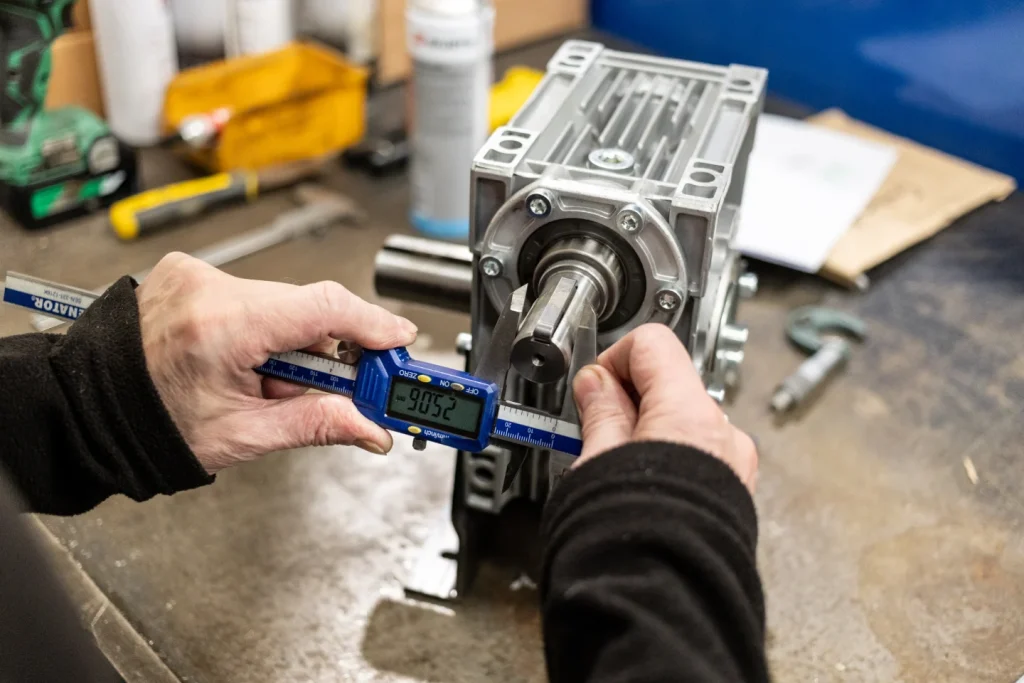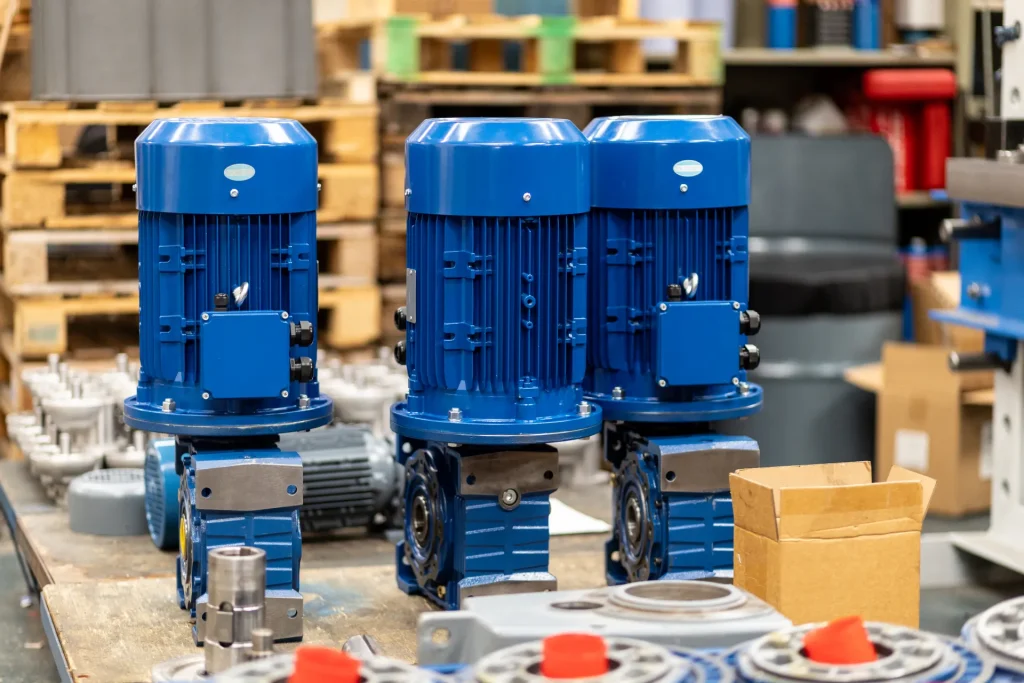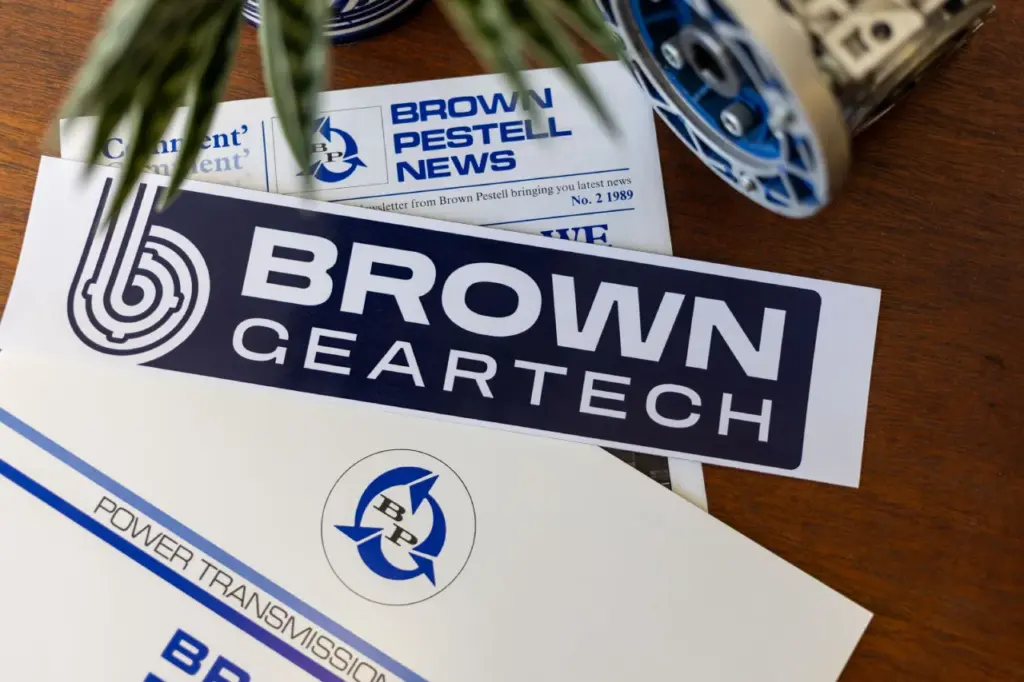Why tailored gearbox design helps OEMs balance performance, reliability, and supply chain certainty
For many OEMs, an off-the-shelf gearbox can appear to be the simplest route: predictable prices and clear delivery times. But when your application demands more than a catalogue unit can provide, compromises in performance soon become costly. That’s where custom worm gearboxes and bespoke geared motors deliver real value.
As a British industrial gearbox manufacturer, we’ve seen first-hand how tailored gearbox design keeps mission-critical systems running reliably in food processing, materials handling, quarrying, and beyond.
Why off-the-shelf gearboxes sometimes fall short
Standard worm gear reducers and gearbox motors are fine for general use. They’re quick to source and often cheaper upfront. But many OEMs tell us the compromises become clear once equipment is live:
- Limited torque ratings that restrict performance
- Larger footprints that don’t fit seamlessly into existing designs
- Higher noise and vibration levels that affect ergonomics
- Shorter lifespans due to generic materials or lubrication systems
For industries where downtime isn’t an option, “good enough” simply isn’t enough.
When you need a custom gearbox
A custom gearbox design for OEMs isn’t about unnecessary complexity. It’s about precision engineering that matches the gearbox to the exact application. In our experience, the main triggers for customisation include:
- Unique torque specifications or duty cycles
- Space restrictions requiring compact, tailored dimensions
- Compliance with food-grade or industry-specific standards
- Integration with specialist motors, torque limiters, or output flanges
In practice, this might mean developing a gearbox with a specialist flange for food machinery, or integrating torque limiters for heavy-duty transport equipment. These examples show that customisation at scale isn’t only achievable, but often the most effective way to balance performance with reliability.
As our Sales Director, Nichola Adshead, puts it:
“OEMs often come to us after struggling with an off-the-shelf unit that just doesn’t quite fit. A small design tweak, like adjusting the footprint or torque limiter can be the difference between repeated downtime and years of reliable service.”
Common customisation options
Custom worm gearboxes give OEMs flexibility in:
- Material selection – to improve wear resistance or meet hygiene standards
- Gear ratios – optimised for load peaks and long duty cycles
- Mounting and footprint – ensuring smooth integration with existing machinery
- Noise reduction features – such as advanced tooth profiles and damping systems
These refinements extend service life, cut downtime, and often lower operating costs long term.
Why UK manufacturing matters
OEMs frequently raise concerns about long lead times, import costs, and supply chain risks when sourcing gearboxes overseas. Local manufacturing helps reduce those uncertainties. Shorter lead times, easier communication during the design phase, and the ability to prototype quickly all contribute to smoother, more reliable delivery.
Best practices for bespoke gearbox manufacturing
The most effective industrial gearbox suppliers keep customisation practical by:
- Offering early technical input from engineers
- Collaborating transparently with your design teams
- Scaling production to meet agreed volume commitments
For OEMs, choosing a gearbox supplier with this approach means confidence not only in the gearbox itself but in the stability of the supply chain behind it.
Custom doesn’t have to mean complicated
The idea of a custom gearbox can feel daunting – longer lead times, higher costs, more design input. But in reality, the right gearbox supplier makes the process straightforward and efficient. When downtime, reliability, and long-term performance are on the line, custom worm gearboxes often prove to be the simplest solution of all.
For OEMs in the UK exploring tailored gearbox solutions, working with a trusted gearbox supplier ensures performance, reliability, and peace of mind. Read more from the blog including How to specify a gearbox for OEM machinery: a complete engineers guide and Why UK OEMs trust British made gearboxes for mission-critical applications.



